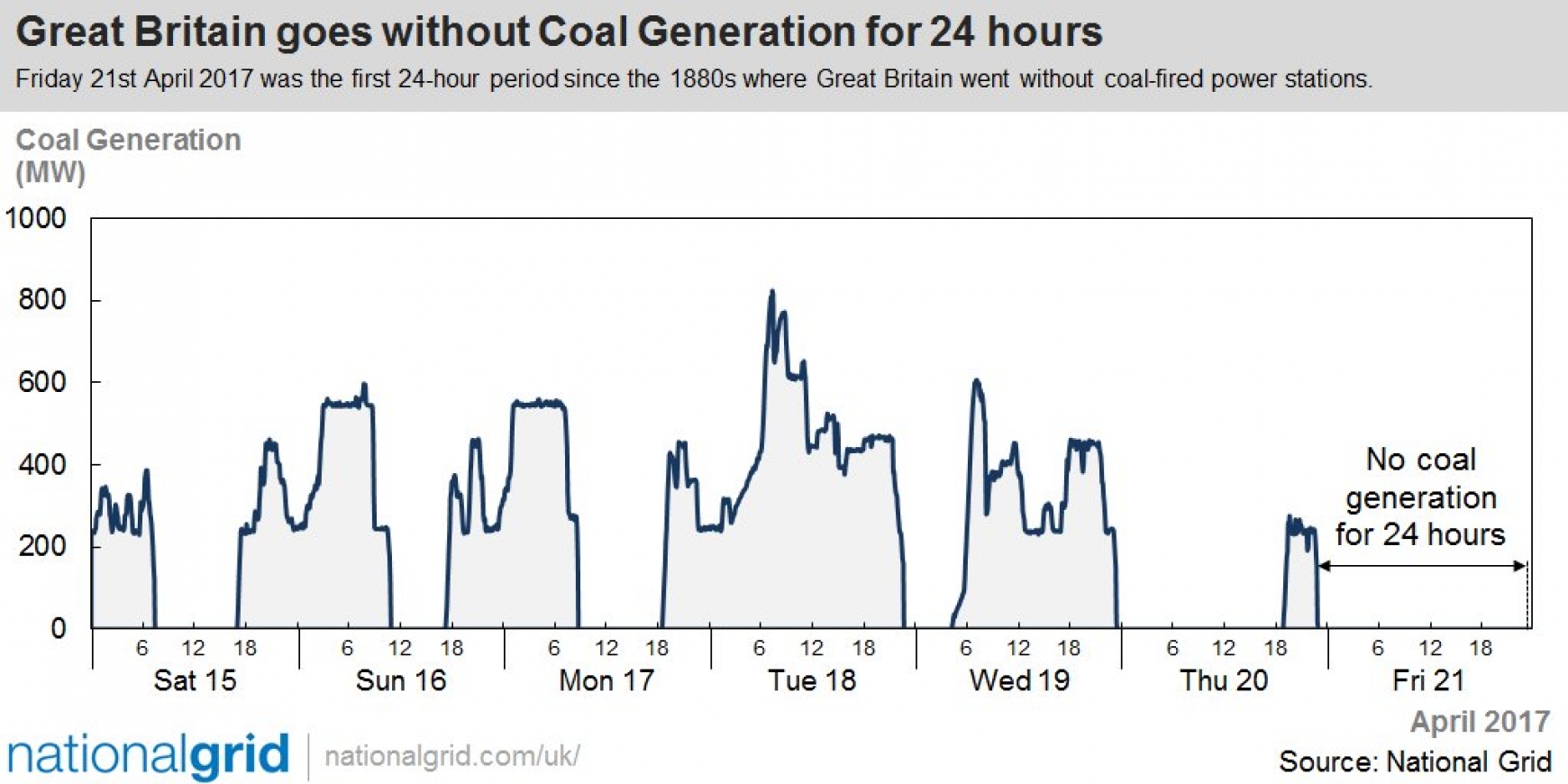Friday 21st April 2017 was the first 24-hour period, since the industrial revolution, that Great Britain went without the need to run its coal-fired power stations.
This landmark was achieved thanks to the typically lower demand on Fridays and the recent increase in renewable energy from wind and solar installations, amongst others. The electricity generation mix on Friday was roughly 49% gas, 20.8% Nuclear, 11.6% wind, 7.9% other, 7.5% imports, and 3.2% solar[1]. The longest previous period without coal generation (19 hours) was first achieved on a weekend last May, which was matched on Thursday 20th April 2017. Across the whole of 2016, 9% of electricity generation was achieved from coal fired power stations. There are, however, some worries about the margin of potential supply above peak demand, which currently sits at just 1.2% and has recently resulted in National Grid offering two lucrative contracts to coal fired power stations.
Historically, electricity has been produced primarily by coal; in the 1980s, coal was still providing up to 70% of electricity generation in Britain. In 1882, the first coal-fired power station was opened at Holborn Viaduct, London by Thomas Edison. A delightful quote of the day stated that “a hundred weight of coal properly used will yield 50 horse power for an hour.” It went on to say that each horsepower “will supply at least a light equivalent to 150 candles”[2]. Eventually, the smog created by stations located close to cities prompted the Clean Air Act of the 1950s, causing the widespread re-location of coal-fired power stations.
However, whilst there was no generation from UK power stations on the 21st April 2017, electricity generation from coal on the continent was imported via interconnectors. For example, electricity production from coal generation peaked at 1,700 MW in France[3] on Friday (which equated to 3% of France’s demand at the time), while Ireland still retains one coal fired power station and the Dutch still rely heavily on coal generation. On top of this, it is not unusual to see countries on the continent regularly go without coal generation, with Germany being a prime example. So, while strictly not a ‘coal free’ day, it is definitely a step in the right direction considering the UK Government’s pledge to close Britain’s coal fired power stations by 2025.


